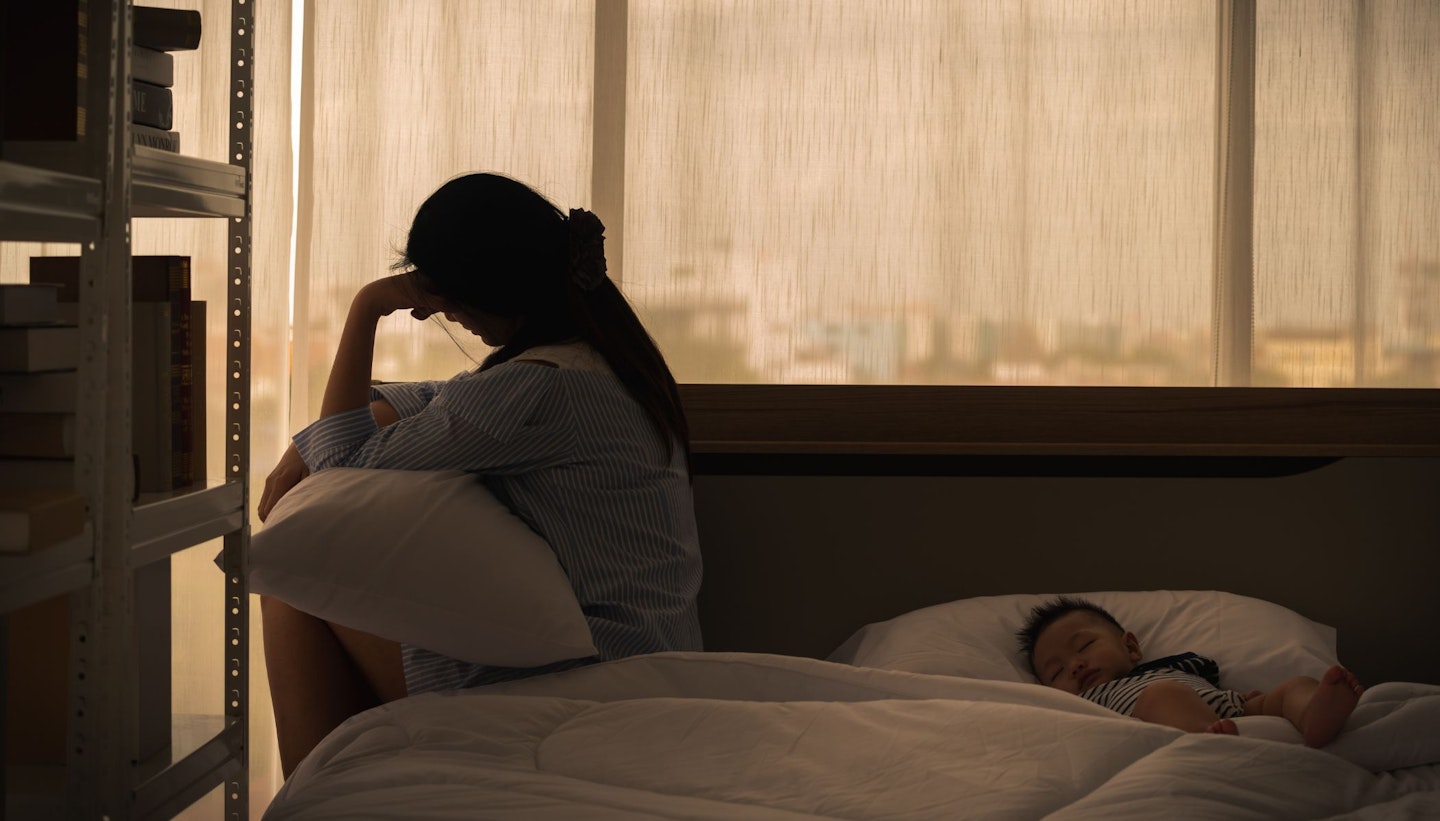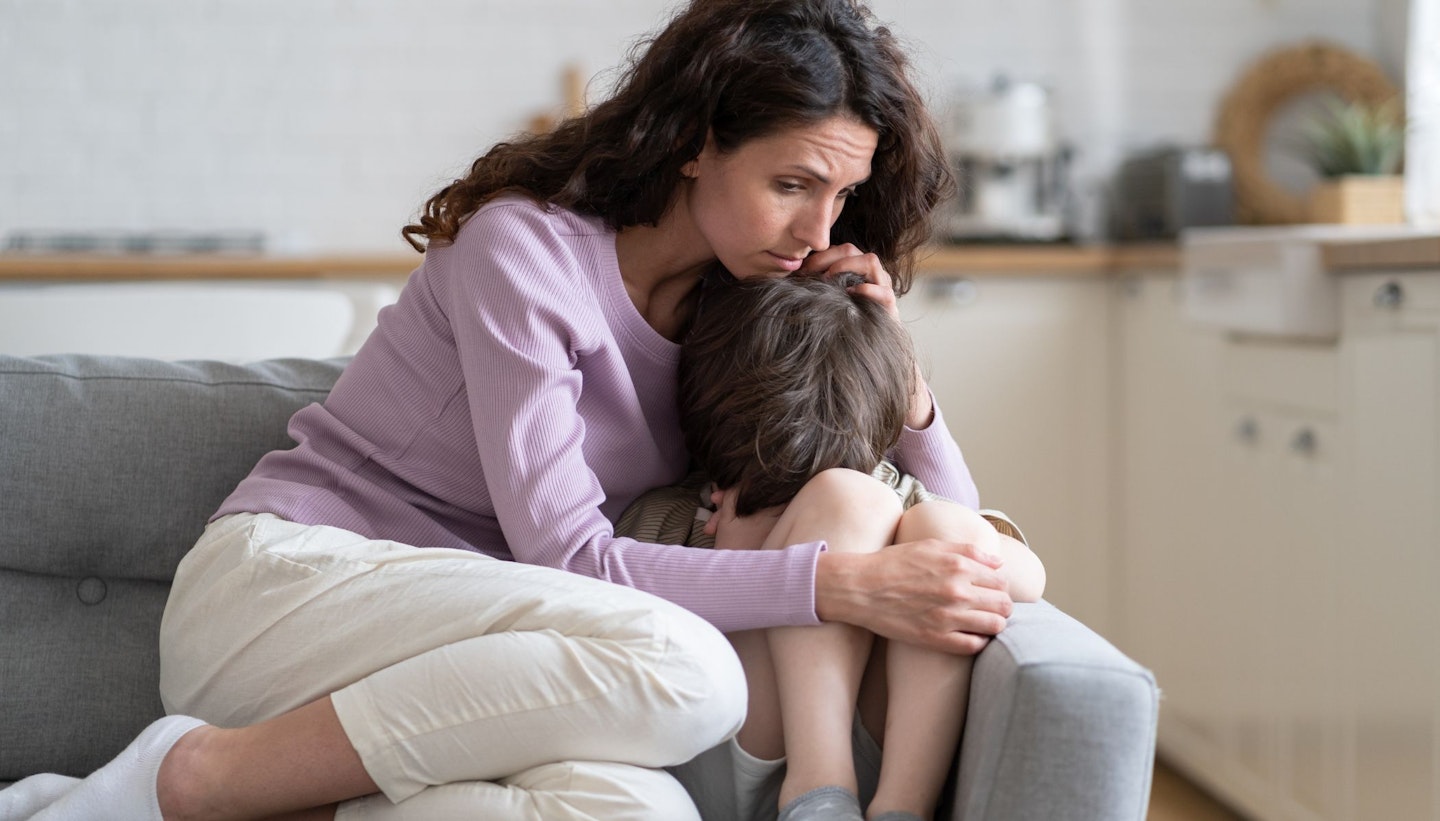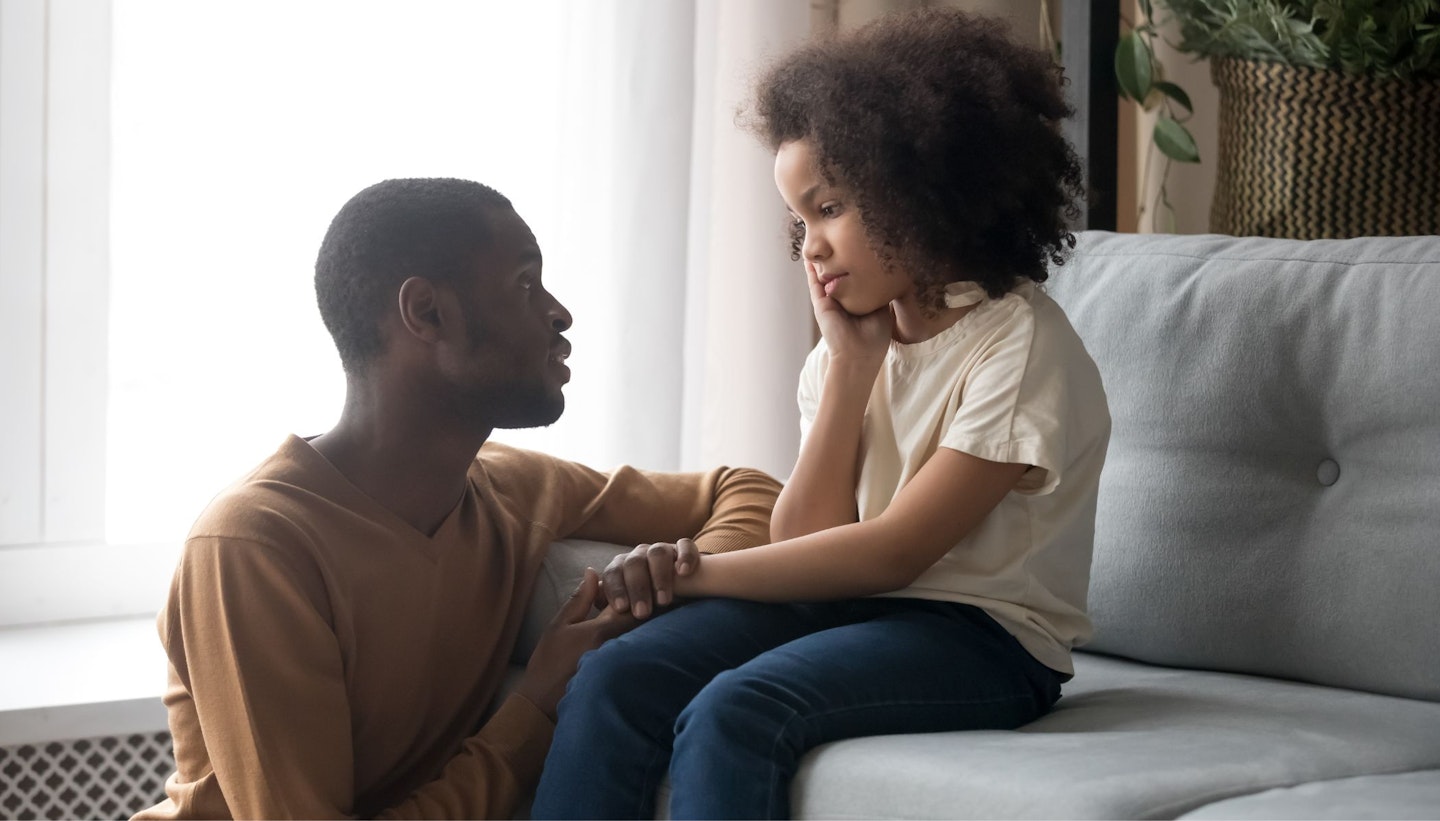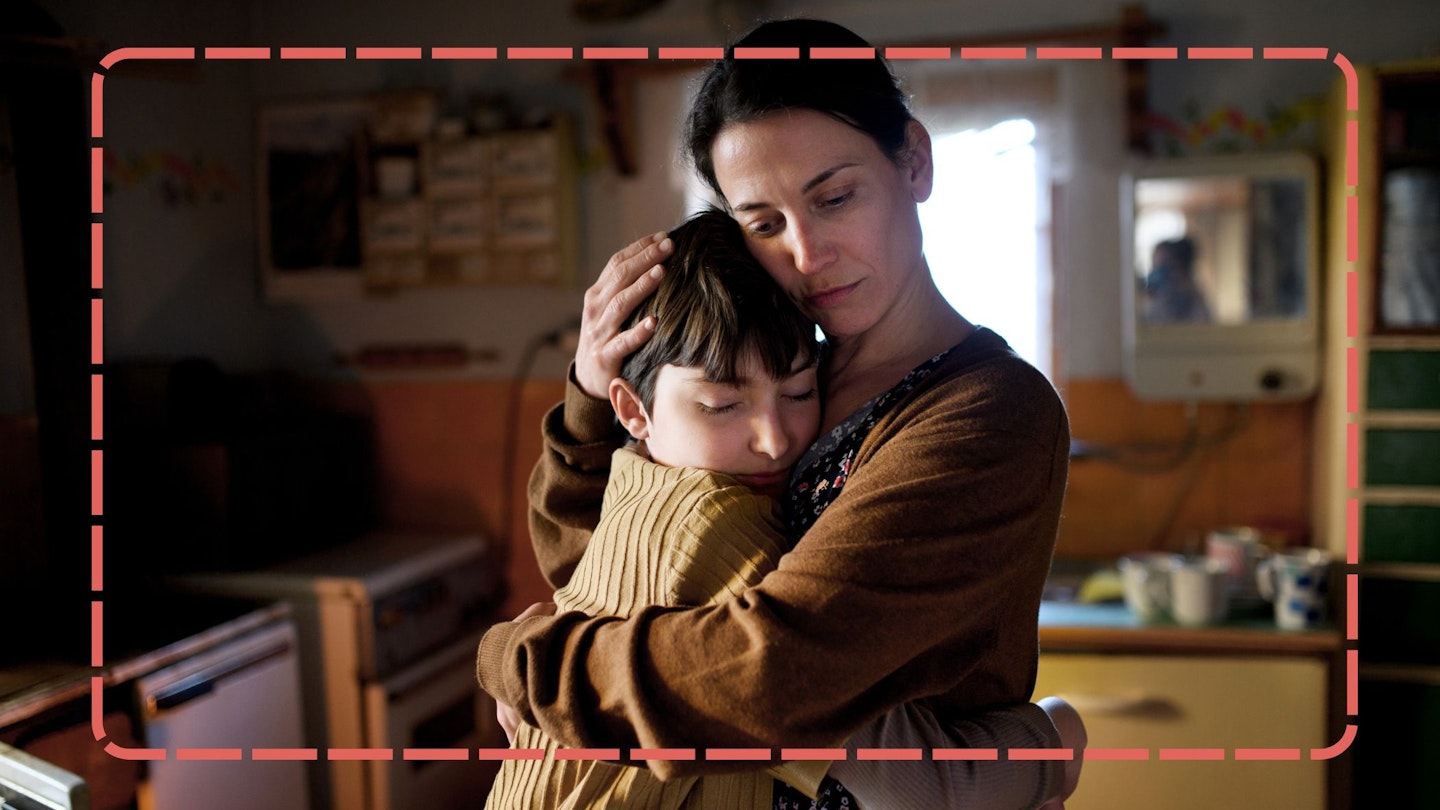Grief can feel like an overwhelming weight, especially when you're trying to stay strong for your children. Parenting doesn’t stop when life brings unimaginable loss, but in those tender moments, there’s also an opportunity for healing. By grieving together, you can find strength in shared love, create space for emotions, and build resilience to carry you both forward.
"Helping a child navigate grief while managing your own is a delicate, sensitive, and demanding balance," says Educational Psychologist Dr Patricia Britto. "As a parent, you want to support your child without neglecting your emotional needs."
Grief isn’t linear, and there’s no "right" way to experience it. "Some days, you might feel strong and capable, while others feel overwhelming. That’s okay," Dr Patricia adds. "Grieving together can help you grow closer, support one another, and build resilience. And always remember: asking for help is a strength, not a weakness."Here, we spoke to psychologists on how to parent while grieving, and what to say and what not to say to the grieving parent. We've also spoken with real-life mums who’ve had to navigate this path themselves.

Psychologists weigh in on parenting while grieving
Richard Reid and Dr Patricia Britto share practical advice for navigating grief as a parent:
-
Share your grief: Be open about your feelings with age-appropriate language, e.g., “I miss Grandpa today.”
-
Prioritise self-care: Grieving is overwhelming; care for yourself to support your child better. “You can’t pour from an empty cup.”
-
Lean on others: Reach out to friends, family, or support groups for help and companionship.
-
Stick to routines: Daily habits give children a sense of security.
-
Create new traditions: Together, find ways to honour your lost loved one.
-
Acknowledge your feelings: It’s okay to cry and express emotions in front of your child, teaching them that grief is normal and healthy.
-
Share, but simplify: You don’t need to hide emotions, but simplify them for children. For instance, “I’m sad today because I miss Grandma,” helps them grasp loss without overwhelming them.
-
Seek support: Don’t shoulder the burden alone. Connect with professionals like grief counselors or therapists.
-
Create small routines: Even five minutes of quiet daily can help recharge emotional energy.
-
Get outdoors: Nature has a healing quality. A short walk with your child can lift both your spirits.
-
Prioritise sleep and nutrition: Grief can disrupt sleep and eating habits, so make rest and healthy meals a priority.
-
Find moments of joy: It’s okay to experience joy. Watch a funny show, listen to music, or do something you love amidst grief.

Two mums on parenting while grieving
Adejumoke Ilori on losing her mother
"When my mum passed away, telling my daughter was incredibly hard. My mum meant everything to her, and breaking the news was one of the toughest things I’ve ever done. I took time to gather myself and sat down with her, saying, 'I need to talk to you about something sad, sweetheart. Nana has passed away, which means her body stopped working, and she won't be able to be with us anymore.'
"She wrapped her arms around me, asking, "Mummy, are you okay?" I explained that while Nana was no longer with us, she would always be with her in spirit, like an angel. I kept my answers short and age-appropriate, giving her space to ask questions, while maintaining her daily routines for security.
"I let my daughter see me cry to show her that it’s okay to feel emotions. We remember my mum daily by sharing happy memories and looking at photos. Returning to work helped me, as writing became an outlet for my grief. I reassured my daughter it’s always okay to talk about Nana. Instead of asking, ‘Are you sad?’, I use softer questions like, ‘How are you feeling today?’
"On the day of the funeral, my daughter chose to wear a hoodie that said ‘Hopes and Dreams.’ When I asked why, she said, ‘I want Nana to be happy,’ which brought me to tears."
Samantha Ball on losing her brother
"When my brother died suddenly, I went into survival mode, trying to support my parents and sister-in-law while keeping things as normal as possible for my five-year-old and one-year-old. It was Christmas, and I didn’t want to let the kids down. Showing up for my son’s concert two days after my brother passed was tough, but seeing his smile reminded me I had to keep going for him and his sister. I stuck to our routine, breaking down only when they were asleep.
"I explained to my son that it’s okay to cry when we think about Uncle KJ and that we can feel both happy and sad when remembering him. We listened to his favourite songs together, and I believe showing my son that it’s okay to be sad helped him understand and empathise with others. We encouraged letter writing and shared simple beliefs about what happens after death, letting him decide what he wanted to believe. He liked the idea that the stars in the sky are our loved ones watching over us, and that Uncle KJ would be driving our scrapped car around heaven with the Queen."

How to talk to your child about grief
Talking about death with children can feel like walking a tightrope, but Dr Patricia suggests several ways to help them understand and process their feelings without overwhelming them. First, use simple, direct language and avoid complex explanations; for example, say, “Grandma died, which means we won’t see her anymore, but we can remember her.” Additionally, encourage expression through art, play, or storytelling, as these methods provide children with safe and accessible ways to convey their emotions.

Recognising how grief is affecting your parenting
Grief doesn’t just affect you emotionally—it can also change how you parent. Here are a few ways to recognise when grief might be affecting your role as a parent:
-
Shorter temper: If you’re easily irritated, grief may be depleting your patience.
-
Emotional numbness: Grief can leave you feeling detached or disconnected from your child. If this happens, try to reconnect through small, consistent routines like sharing meals or reading bedtime stories.
-
Physical symptoms: Grief can also manifest physically, leading to fatigue or stress-related symptoms. Don’t ignore these signs; taking care of your body helps you remain present for your child.
What to say and what not to say to the grieving parent
Richard shares guidelines on what to say and what not to say to a grieving parent:
What to say:
-
Offer sincere condolences: “I am so sorry for your loss.”
-
Acknowledge their grief: “I can’t imagine what you’re going through, but I’m here for you.”
-
Be present: Sometimes, just being there and offering a hug or a listening ear is enough.
-
Offer specific help: “Can I bring you dinner this week?” or “Would you like me to help with any errands?”
What not to say:
-
Avoid clichés: Phrases like “They’re in a better place” or “Everything happens for a reason” can feel dismissive.
-
Don’t compare losses: Avoid saying, “I know how you feel” unless you have experienced a similar loss.
-
Avoid giving advice: Refrain from saying “You should…” or “You need to…”
-
Don’t minimise their pain: Avoid statements like “At least you have other children” or “At least they lived a good life.”
Being supportive and empathetic, understanding the depth of their pain, can make a significant difference during such a difficult time.
Help is available
Several hotlines and organisations offer support for grief and bereavement in the UK:
-
Marie Curie Support Line: Call 0800 090 2309 for free support from trained volunteers (Mon-Fri 8 AM - 6 PM, Sat 11 AM - 5 PM).
-
Samaritans: Call 116 123 for 24-hour support.
-
Child Bereavement UK: Call 0800 028 8840 (Mon-Fri 9 AM - 5 PM) or email helpline@childbereavementuk.org.
-
Cruse Bereavement Care: Call 0808 808 1677 (Mon & Fri 9:30 AM - 5 PM, Tue-Thu 9:30 AM - 8 PM, Sat-Sun 10 AM - 2 PM).
-
Grief Encounter: Call 0808 802 0111 (Mon-Fri 9 AM - 9 PM) or email contact@griefencounter.org.uk.
-
Winston's Wish: Call 0808 802 0021 (Mon-Fri 8 AM - 8 PM) or email ask@winstonswish.org.
You can also talk to your GP or a healthcare professional for additional support.
Grieving while parenting is an incredibly difficult journey. "It’s a delicate balance," says Dr. Patricia but by sharing your feelings, maintaining routines, and finding moments of joy, it’s possible to support your children—and yourself—through the process. Always remember: it’s okay to ask for help. You don’t have to go through it alone.
About the experts
Dr. Patricia Britto is an Educational Psychologist, mother, and the founder of Mode Educational Psychology. With an unstoppable zest for life and a deep commitment to children and young people, she’s passionate about helping them thrive.
Richard Reid is a leading coaching and psychological consultant in the UK with over two decades of experience. He has established himself as a psychology expert, coach, media spokesperson, keynote speaker, and author.
About the author
Anne Lora Scagliusi is a Senior Digital Writer at Mother & Baby. She is a Scotland-based journalist with over a decade of international writing experience, specialising in women’s health, maternal mental health, and wellness. Her work has been featured in Vanity Fair, Marie Claire, and Glamour and has appeared on several Vogue global editions. She is mum to a one-year-old bambino and lives between Italy and the UK. You can follow her on Instagram.
